Mercedes E-Class Wagon VS Toyota Highlander – Specs, Efficiency & Price Comparison
Which model is the better choice – the Mercedes E-Class Wagon or the Toyota Highlander? We compare performance (585 HP vs ), boot capacity (615 L vs ), efficiency (0.50 L vs ), and of course, the price (52600 £ vs ).
Find out now which car fits your needs better!
The Mercedes E-Class Wagon ({ body-type_1}) is powered by a Diesel MHEV, Plugin Hybrid, Petrol MHEV engine and comes with a Automatic transmission. In comparison, the Toyota Highlander () features a engine and a gearbox.
When it comes to boot capacity, the Mercedes E-Class Wagon offers 615 L, while the Toyota Highlander provides – depending on what matters most to you. If you’re looking for more power, you’ll need to decide whether the 585 HP of the Mercedes E-Class Wagon or the of the Toyota Highlander suits your needs better.
There are also differences in efficiency: 0.50 L vs . In terms of price, the Mercedes E-Class Wagon starts at 52600 £, while the Toyota Highlander is available from .
Compare all the key specs now and find out which model fits your lifestyle best!
Mercedes E-Class Wagon
The Mercedes-Benz E-Class Wagon offers a harmonious blend of luxury and practicality, making it a favourite for those who value both style and functionality. Its sleek exterior design is matched by a sophisticated interior that provides a comfortable and spacious environment for both driver and passengers. This vehicle also boasts advanced technology features, ensuring a smooth and connected driving experience.
details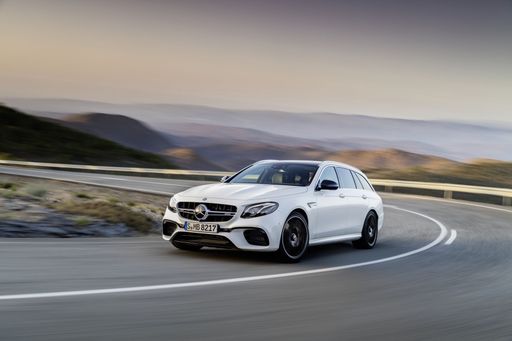 @ group-media.mercedes-benz.com
@ group-media.mercedes-benz.com
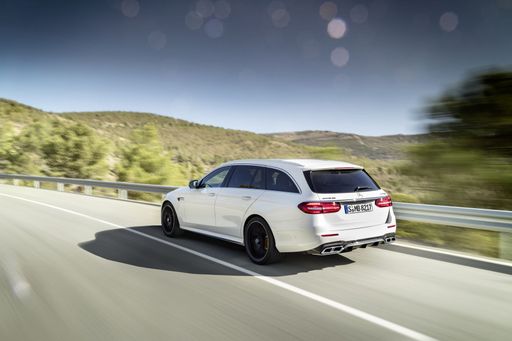 @ group-media.mercedes-benz.com
@ group-media.mercedes-benz.com
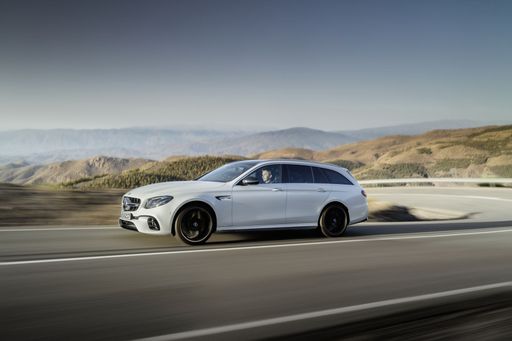 @ group-media.mercedes-benz.com
@ group-media.mercedes-benz.com
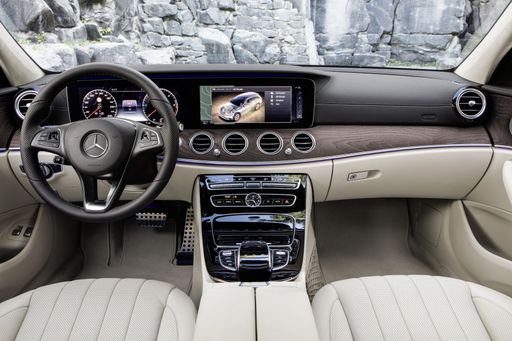 @ group-media.mercedes-benz.com
@ group-media.mercedes-benz.com
Toyota Highlander
The Toyota Highlander is a versatile SUV that seamlessly blends comfort and practicality, making it an ideal choice for families and adventurers alike. With its spacious interior and a clever layout, it offers ample room for passengers and luggage, ensuring every journey is a comfortable experience. Its sophisticated design is complemented by advanced technology features, enhancing both connectivity and safety on the road.
details @ Toyota
@ Toyota
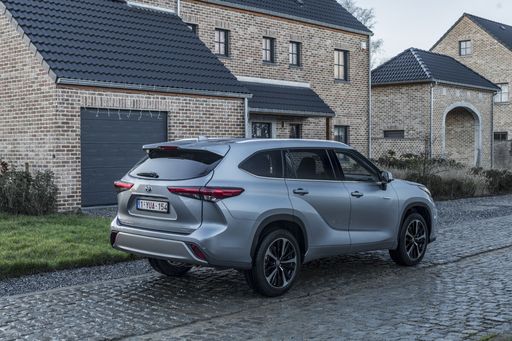 @ Toyota
@ Toyota
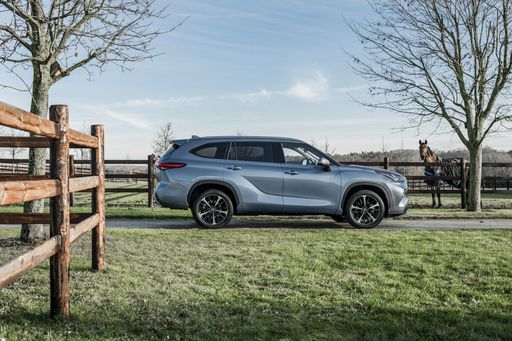 @ Toyota
@ Toyota
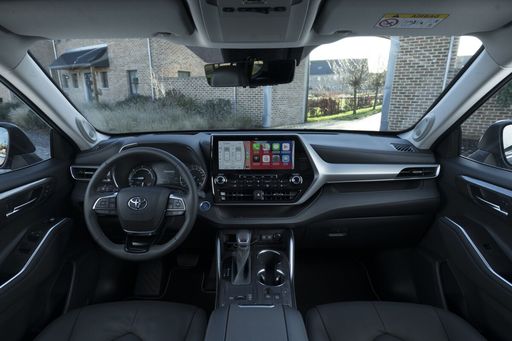 @ Toyota
@ Toyota
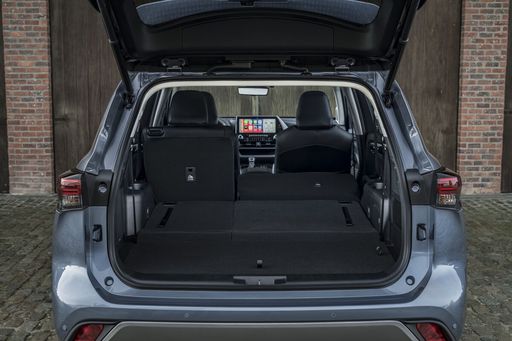 @ Toyota
@ Toyota

|

|
|
|
|
Costs and Consumption |
|
|---|---|
|
Price
52600 - 121800 £
|
Price
-
|
|
Consumption L/100km
0.5 - 7.9 L
|
Consumption L/100km
-
|
|
Consumption kWh/100km
-
|
Consumption kWh/100km
-
|
|
Electric Range
91 - 110 km
|
Electric Range
-
|
|
Battery Capacity
21.20 kWh
|
Battery Capacity
-
|
|
co2
12 - 181 g/km
|
co2
-
|
|
Fuel tank capacity
50 - 66 L
|
Fuel tank capacity
-
|
Dimensions and Body |
|
|---|---|
|
Body Type
Estate
|
Body Type
-
|
|
Seats
5
|
Seats
-
|
|
Doors
5
|
Doors
-
|
|
Curb weight
1900 - 2435 kg
|
Curb weight
-
|
|
Trunk capacity
460 - 615 L
|
Trunk capacity
-
|
|
Length
4949 - 4959 mm
|
Length
-
|
|
Width
1880 mm
|
Width
-
|
|
Height
1469 - 1497 mm
|
Height
-
|
|
Payload
540 - 645 kg
|
Payload
-
|
Engine and Performance |
|
|---|---|
|
Engine Type
Diesel MHEV, Plugin Hybrid, Petrol MHEV
|
Engine Type
-
|
|
Transmission
Automatic
|
Transmission
-
|
|
Transmission Detail
Automatic Gearbox, Automatikgetriebe
|
Transmission Detail
-
|
|
Drive Type
All-Wheel Drive, Rear-Wheel Drive
|
Drive Type
-
|
|
Power HP
186 - 585 HP
|
Power HP
-
|
|
Acceleration 0-100km/h
4.1 - 8.8 s
|
Acceleration 0-100km/h
-
|
|
Max Speed
213 - 250 km/h
|
Max Speed
-
|
|
Torque
320 - 750 Nm
|
Torque
-
|
|
Number of Cylinders
4 - 6
|
Number of Cylinders
-
|
|
Power kW
137 - 430 kW
|
Power kW
-
|
|
Engine capacity
1993 - 2999 cm3
|
Engine capacity
-
|
General |
|
|---|---|
|
Model Year
2023 - 2024
|
Model Year
-
|
|
CO2 Efficiency Class
E, B, G, F, D
|
CO2 Efficiency Class
-
|
|
Brand
Mercedes-Benz
|
Brand
-
|
Mercedes E-Class Wagon
Introduction to the Mercedes-Benz E-Class Wagon
The Mercedes-Benz E-Class Wagon, or T-Modell, has long been synonymous with luxury, versatility, and cutting-edge technology. It stands as a paragon of engineering excellence, continually raising the bar in the premium estate category. Catering to a wide array of needs, this model combines elegance with functionality, offering both performance and practicality in equal measure.
State-of-the-Art Powertrains
At the heart of the E-Class Wagon are its diverse powertrain options, designed to meet varying driver preferences. Boasting everything from mild-hybrid diesel and petrol engines to advanced plug-in hybrid systems, the model ensures reduced emissions without compromising performance. Engine options range from 220 PS to a thrilling 585 PS, supported by seamless automatic gearboxes that provide a smooth and dynamic driving experience.
Innovative Features and Technology
The Mercedes-Benz E-Class Wagon is brimming with innovative features that enhance safety and driving pleasure. The latest models come equipped with intelligent drive features, including advanced driver-assistance systems that anticipate and react to road conditions in real time. These include adaptive cruise control, lane-keeping assist, and autonomous emergency braking, working together to create a safer and more comfortable journey.
Exceptional Comfort and Practicality
Possessing an uncompromising attention to detail, the E-Class Wagon offers luxurious interiors that blend premium materials with cutting-edge technology. The spacious cabin seats five comfortably, while the load capacity of up to 615 litres ensures ample space for luggage and equipment. Options for exclusive trim lines, such as the AMG Line and Exclusive Premium variants, allow for bespoke touches tailored to individual tastes.
Eco-Friendly Efficiency
As the automotive industry pushes towards sustainability, Mercedes-Benz has ensured that the E-Class Wagon stays ahead of the curve. With CO2 emissions ranging from a mere 12 g/km in hybrid variants to a commendable efficiency of 181 g/km for the more powerful models, and fuel consumption as low as 0.5 L/100km, these estates deliver eco-friendly performance that doesn't sacrifice power.
Advanced Safety Systems
Safety is paramount in the E-Class Wagon, thanks to the incorporation of pioneering systems that protect both driver and passengers. The models benefit from sophisticated airbags, intelligent braking technology, and structural enhancements that have all contributed to an enhanced safety rating. Additionally, dynamic handling updates ensure a stable ride even in challenging driving conditions.
Conclusion
In summary, the Mercedes-Benz E-Class Wagon is a luxury vehicle that pushes boundaries through its impressive range of technical features and innovation. Whether for urban commutes or grand touring, the estate's harmonious blend of efficiency, performance, and luxury sets a new standard for what a premium estate can offer.
Toyota Highlander
Meet the Toyota Highlander: A Synergy of Power and Efficiency
The Toyota Highlander stands as a testament to modern automotive engineering, blending robust design with state-of-the-art hybrid technology. Designed for families seeking both luxury and practicality, this SUV is more than just a means of transportation—it is an innovative solution to contemporary demands.
Stellar Performance and Hybrid Technology
Under the bonnet of the Highlander lies a full-hybrid powertrain that marries efficiency with performance. Producing an impressive 248 PS, the Highlander doesn't just promise power but delivers it with a refined acceleration from 0 to 100 km/h in just 8.3 seconds. Such performance is coupled with a frugal fuel consumption rate ranging between 6.6 and 7.1 L/100km, setting a benchmark for hybrid SUVs in its class.
A Dynamic Driving Experience
Fitted with a Continuously Variable Transmission (CVT), the Highlander ensures a smooth and responsive driving experience. The all-wheel-drive system enhances safety and control, providing confidence across various driving conditions. With a maximum speed of 180 km/h, this SUV is crafted to perform on both city streets and open highways.
Precision Engineering and Eco-Conscious Design
The Highlander boasts a four-cylinder engine with a displacement of 2487 cm³, perfectly balancing power and environmental considerations. Despite its robust performance, the vehicle remains eco-conscious, adhering to CO2 emissions ranging from 149 to 160 g/km, classified under the CO2 efficiency classes E and F.
Space and Luxury Redefined
Designed with practicality in mind, the Highlander seats seven comfortably, making it an ideal choice for family adventures. Its 241-litre boot capacity, expandable with rear seats folded, ensures storage space is never a concern. From its elegant body design measuring 4966 mm in length to its expansive width of 1930 mm, the Highlander exudes both strength and elegance.
Unmatched Safety and Features
Incorporated within the Highlander are safety features and innovative technologies that enhance every drive. Depending on the trim level—Business Edition, Executive, or Luxury—drivers are offered an array of amenities designed to improve comfort and security.
Cost-Effective Ownership
Though packed with features, the Highlander remains cost-effective. Monthly costs range from €1428 to €1606, with per kilometre expenses of 57.2 to 64.3 cents. This financial feasibility, combined with enduring quality, makes the Highlander a worthwhile investment for conscientious consumers.
Conclusion
The Toyota Highlander transcends the typical expectations of an SUV, providing an exceptional blend of power, space, and technology. Whether navigating urban landscapes or embarking on rural escapes, it promises to deliver with unparalleled versatility and comfort.
The prices and data displayed are estimates based on German list prices and may vary by country. This information is not legally binding.
